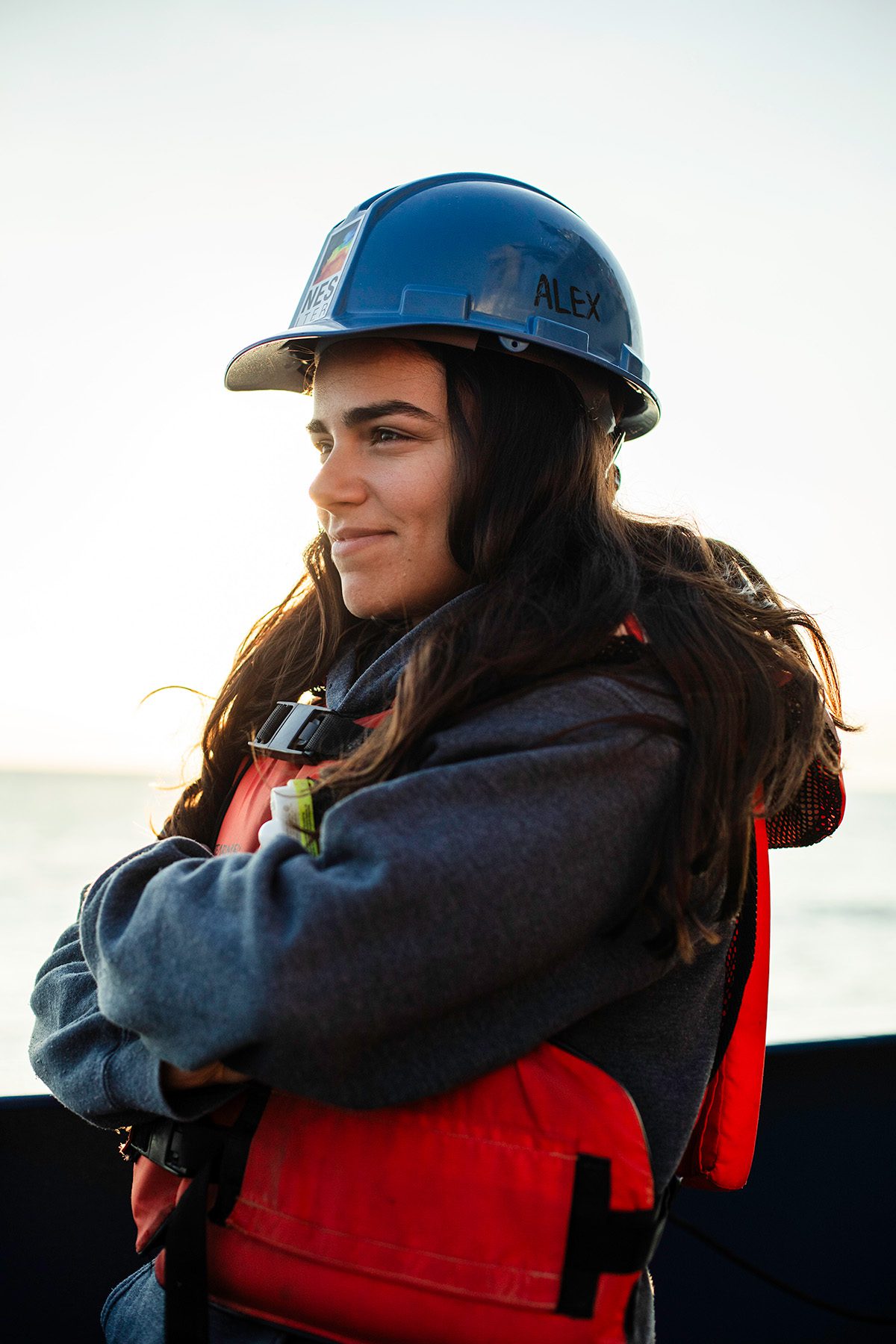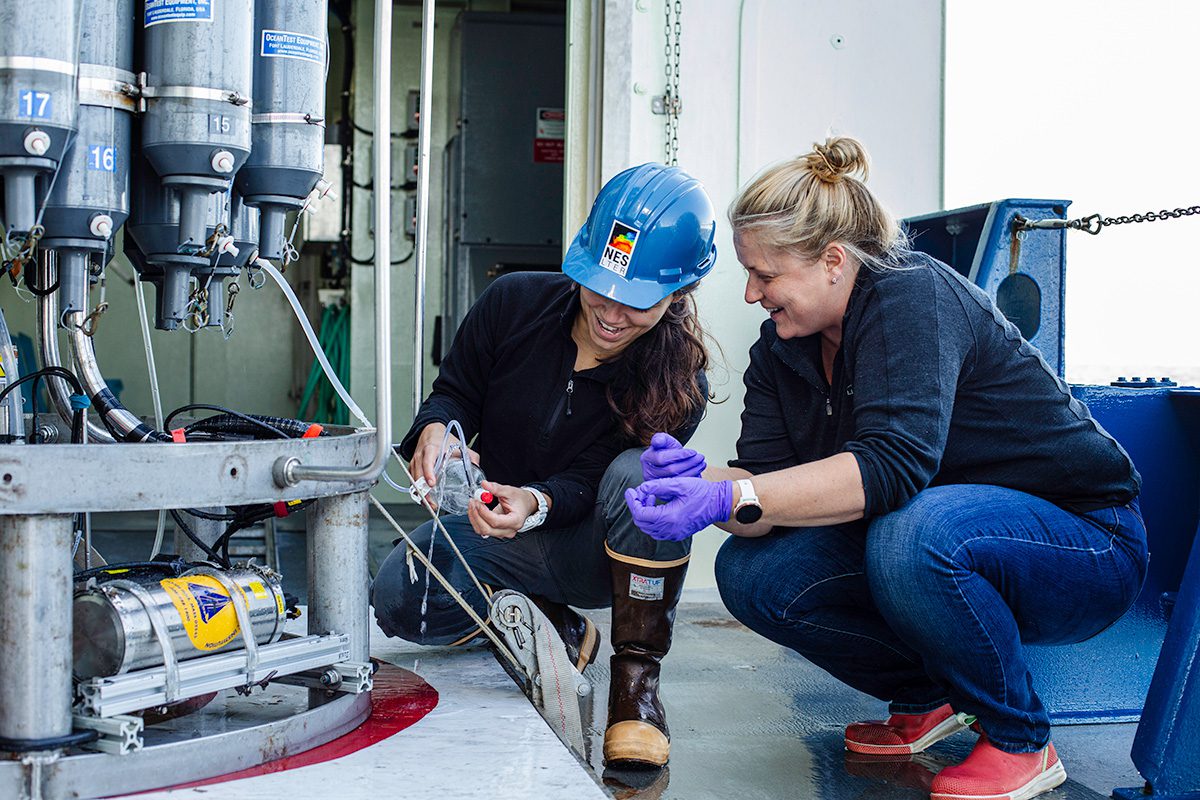I grew up in San Juan, Puerto Rico, surrounded by water, so I spent a lot of time snorkeling and at the beach. In the morning, before school started, my dad, sister, and I would take our dogs for walks by the water to watch the sunrise. We would see a lot of manatees and sea turtles, but I really enjoyed looking at the smaller creatures too. From an early age, I was really interested in learning more about the organisms I was interacting with while I was out there. With time, I decided, “Yeah, okay, this might be a cool career.”
My path since then has been very interesting. I did my undergrad in Florida, where I focused on marine biology, but then I ended up working in the Everglades doing freshwater research. I then worked as a summer research technician in Alaska, where I worked kind of in between the intertidal zone and freshwater streams, and then went to Ohio State University, where I got my master’s in fisheries ecology with research in Lake Eerie. Eventually, I heard about the MIT-WHOI joint program “JP Ask” mentoring resource, which connects prospective students with those already in the PhD. program. I applied– and was accepted!
"What I enjoy the most about working at sea and on the LTER project is being able to build relationships with other scientists from different career stages and institutions. We learn so much from each other!"
At WHOI, I focus on food web ecology, specifically food web dynamics with zooplankton and forage fishes. Basically, I look into who eats whom in the water. I’m currently in WHOI Senior Scientist Heidi Sosik’s lab, looking into how plankton communities are responding to our changing climate at the Northeast U.S. Shelf Long-Term Ecological Research (NES-LTER) station, which is funded by the National Science Foundation.
I still love spending time out on the water. I find it very calming and freeing. However, what I enjoy the most about working at sea and on the LTER project is being able to build relationships with other scientists from different career stages and institutions. We learn so much from each other!


